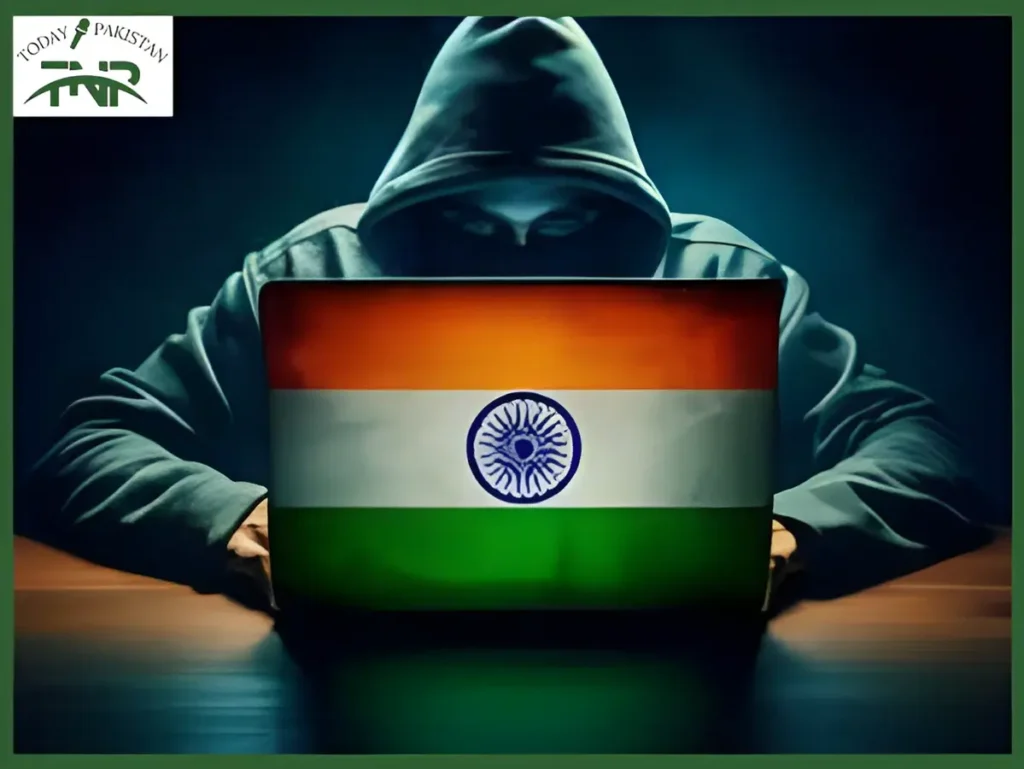
In a shocking development, the Pakistan Development Institute (PDI) internet site became the cutting-edge sufferer of a cyberattack allegedly performed through Indian hackers. This breach has raised extreme issues about the safety of government websites and the growing chance of cyber warfare in the region. As digital infrastructure will become more and more vital, these kinds of attacks can disrupt vital offerings, expose sensitive records, and further pressure the already tense relationship among Pakistan and India.
Hackers Leave Provocative Messages on the Site
The assault, which began in advance this week, noticed the internet site of the PDI being defaced with the phrase “Jay Shri Ram,” a slogan broadly associated with Hindu nationalism. This phrase changed into displayed prominently at the website, serving as a clean signal of the attackers’ cause to use the platform to sell political and religious messaging.
In addition to this slogan, the hackers left numerous different unsettling messages, consisting of “we’re unknown” and “we can not forget.” These statements indicate the group’s preference to stay nameless even as a stern warning. Their bold declaration that no cybersecurity measures should prevent attacks in addition to the growing anxiety surrounding the vulnerability of Pakistan’s virtual assets.
Threat of More Attacks
The hackers claimed to have accessed the internet site’s fundamental server, which, if genuine, implies they may execute even greater unfavourable attacks in the future. They threatened to preserve their cyber offensive if Pakistan did not stop what they termed “interference” in Indian cyberspace. This statement displays the deep-rooted tensions among the two nations, in which digital attacks have become some other battleground inside the broader geopolitical warfare.
This event has highlighted the weaknesses within the cybersecurity measures of government organizations and raises urgent questions about how secure other critical infrastructure is from similar attacks. If hackers can breach the defenses of a main institute, other sensitive authorities web sites and databases will also be at danger.
The Broader Context: A Digital Cold War
The digital warfare between Pakistan and India is not new. Over the past few years, both countries have seen an increase in cyberattacks, reflecting their broader political conflicts. These attacks are not just simple defacements; they often carry political messages or aim to disrupt key operations.
Read More Blogs:-
EU and British Council to Create 4 Centers to Build Skilled Workforce in Pakistan
Xiaomi Might Be Working on a Tri-Fold Phone Too
Earlier this year, a Pakistani hacking group allegedly launched a cyberattack on the Indian government using sophisticated malware known as DISGOMOJI. This malware, written in the Go programming language, targeted Linux-based systems, highlighting how advanced hacking tools are being developed and deployed by both sides. According to reports by leading cybersecurity firm BlackBerry, DISGOMOJI is part of a broader espionage campaign attributed to the hacking group known as Transparent Tribe, believed to have ties with Pakistan.
In this instance, the hackers behind the Pakistan Development Institute attack have sent a clear signal that they are capable of far more than a simple website defacement. Their threat to escalate the situation if their demands are not met suggests a potentially dangerous future for Pakistan’s digital security.
Impact on National Security and Cybersecurity Measures
Cybersecurity experts are urging the Pakistani authorities to take swift and decisive action in response to this latest attack. Strengthening the defenses of government websites and sensitive infrastructure is vital to stopping future incidents. Such attacks can have huge effects, from records breaches to the spread of misinformation, that could significantly impact country wide safety.
This incident serves as a warning call for government officers and organizations to put money into stronger cybersecurity protocols. While it’s far more difficult to completely prevent cyberattacks, modernizing protection systems, enforcing regular audits, and educating the workforce on digital threats can help mitigate risks.
Conclusion
The attack on the Pakistan Development Institute’s internet site is a reminder that cyber threats are an ever-present hazard in these days’s digital age. As tensions between Pakistan and India continue to simmer, these cyberattacks will probably continue, posing severe risks to each countries’ virtual infrastructures. For Pakistan, it is important to stay ahead of those threats by strengthening cybersecurity structures and making ready for the evolving nature of digital war.
Get Curated Post Updates!
Sign up for my newsletter to see new photos, tips, and blog posts.






